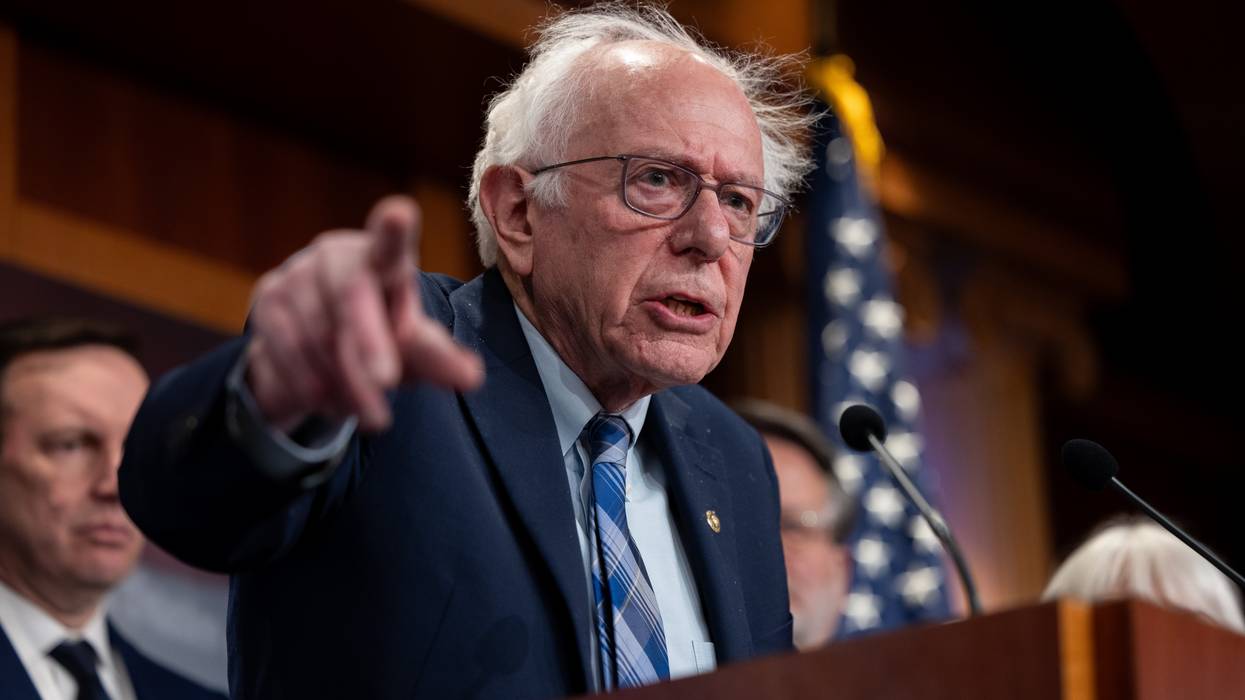New Report Shows Working-Class Americans Live 7 Years Fewer Than Rich
"The massive income and wealth inequality that exists in America today is not just an economic issue, it is literally a matter of life and death," said Sen. Bernie Sanders of Vermont.
People living in the top 1% of U.S. counties ranked by median household income live on average seven years longer than their counterparts in the bottom 50% of counties, according to a Friday report from Sen. Bernie Sanders, an Independent representing Vermont and the ranking member of the Senate Committee on Health, Education, Labor, and Pensions.
"The massive income and wealth inequality that exists in America today is not just an economic issue, it is literally a matter of life and death," said Sanders in a Friday statement announcing the report.
What's more, the stress of living paycheck to paycheck "also leads to higher levels of anxiety, depression, cardiovascular disease and poor health," Sanders argued, in a nod to some of the survey responses included in the analysis.
The analysis echoes findings by other researchers that higher income is associated with greater longevity. According to a Congressional Research Service report from 2021, life expectancy has generally increased over time in the United States—with the exception of during Covid-19 pandemic—but "researchers have long documented that it is lower for individuals with lower socioeconomic status compared with individuals with higher socioeconomic status. Recent studies provide evidence that this gap has widened in recent decades."
The findings in Sanders' report relied on county-level data in the United States between 2015 and 2019, the five years prior to the pandemic. For that time period, Sanders' staff matched each U.S. county with both median household income data from the U.S. Census Bureau and average life expectancy data from the Institute for Health Metrics and Evaluation, according to the report.
The life expectancy gap was greater when comparing higher-earning urban and suburban communities with lower-earning rural communities. "Urban and suburban counties with a median household income of $100,000 have an average life expectancy of 81.6 years, while small rural counties with a median household income of $30,000 have an average life expectancy of 71.7 years—a 10-year gap," according to the report.
A boost in earnings also translated into a boost in life expectancy. For example, "among rural counties, a $10,000 increase in median annual household income is associated with an additional 2.6 years of life expectancy," according to the report.
The analysis also includes qualitative data collected by Sanders, who asked working people via social media survey how stress impacts their lives. The outreach generated over 1,000 responses from people around the country.
According to the report, Caitlin from Colorado said: "Stress isn't just an inconvenience for me—it's a direct threat to my heart. Living with a congenital heart defect and multiple mechanical valves means that every surge of anxiety, every sleepless night worrying about bills, isn't just mentally exhausting—it physically wears on my heart."
"Living paycheck to paycheck while supporting a family stresses me out. We are always just one financial emergency from being homeless," said Patrick from Missouri.
One person also reported having to go without preventative healthcare because they are between jobs and can't afford the care without insurance.
The report offers a number of policy solutions to address the key findings of the analysis, including raising the minimum wage to at least $17 an hour, guaranteeing paid family and medical leave, and passing Medicare for All, which would enact a single-payer health insurance program.


